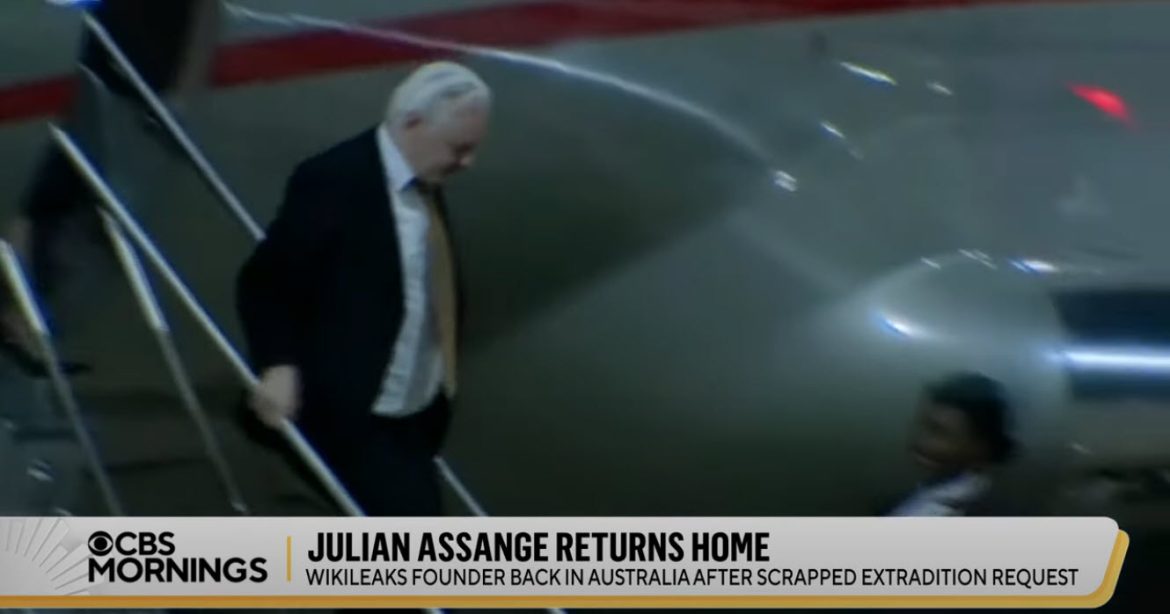WikiLeaks founder Julian Assange has returned to Australia for the first time in more than a decade after reaching a plea deal with the U.S. Justice Department. Assange, who pleaded guilty to a single felony charge of conspiring to obtain and disclose classified U.S. national defense documents, was released as part of the agreement. His return marks a significant moment in a lengthy legal saga that has seen Assange spend the past five years in a British prison.
Assange touched down in Canberra on Wednesday evening, arriving from the Northern Mariana Islands, where he had attended his final plea hearing. He was greeted by cheering crowds, including supporters and family members, such as his father John Shipton and wife Stella Assange.
At a news conference held in Canberra, Stella Assange expressed her relief and gratitude. “It has been an incredibly difficult journey, but we are thankful that Julian is finally home,” she said. “We look forward to rebuilding our lives and moving forward.”
Assange’s lawyer, Jennifer Robinson, also spoke at the conference, emphasizing the importance of the plea deal in allowing Assange to return to his family. “This deal represents a significant resolution to Julian’s legal challenges and allows him to reunite with his loved ones.”
The plea deal, which saw Assange plead guilty to conspiring to unlawfully obtain and disseminate classified information, was brokered to end his prolonged legal battles. The U.S. charges against Assange stemmed from WikiLeaks’ publication of a vast trove of classified military and diplomatic materials in 2010, some of which revealed possible war crimes committed by American forces in Iraq.
The release and return of Assange have been met with mixed reactions globally. Supporters view it as a triumph for press freedom and whistleblowing, while critics argue it sets a concerning precedent for the handling of classified information.
As Assange steps back onto Australian soil, the focus now shifts to his future and the broader implications of his case. The plea deal and subsequent release underscore the complex interplay between national security, freedom of the press, and the rights of whistleblowers.



